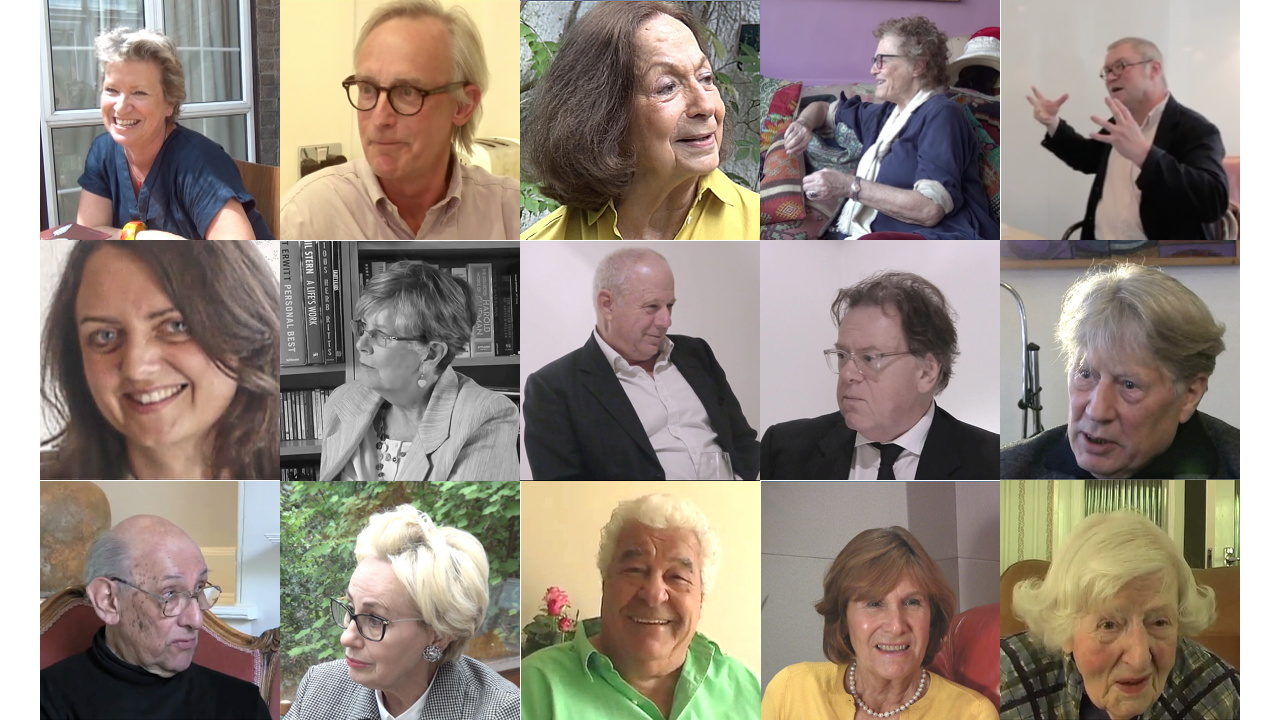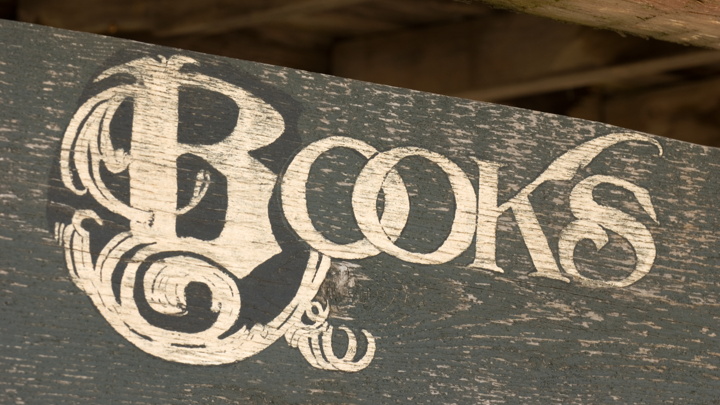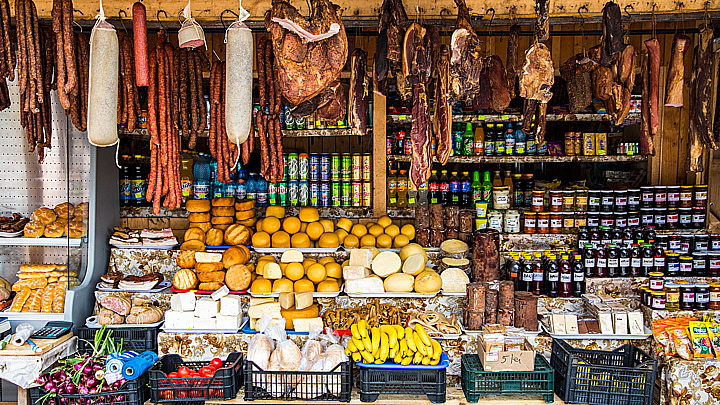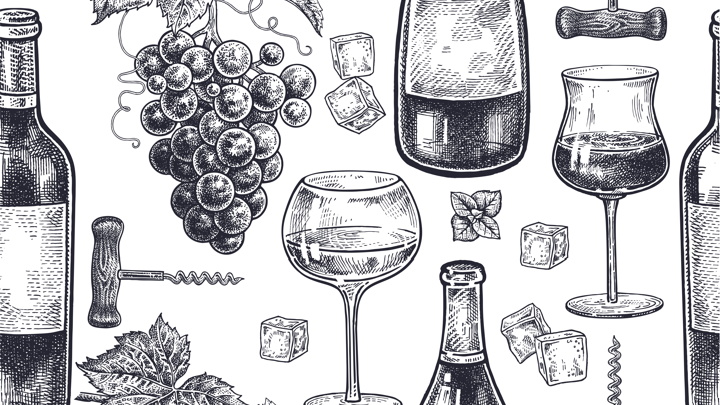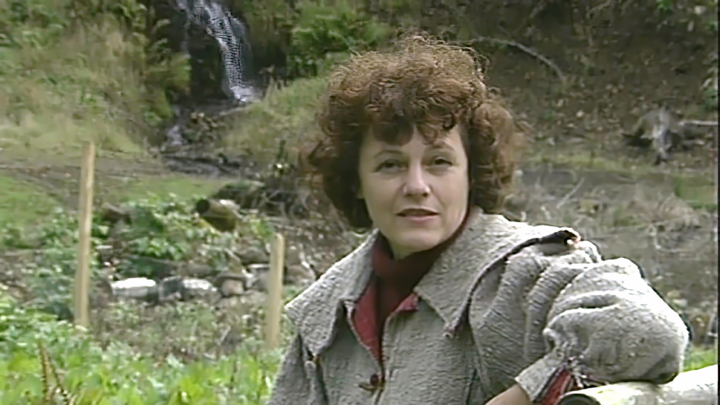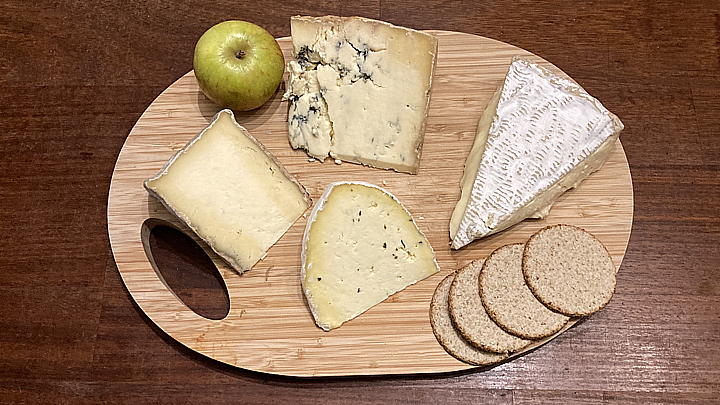About Talking of Food
Talking of Food is a magazine website set up by a group of people who love not only food but also the diversity of its culture. It is not bound by ideology or momentary fads but has an open mind towards opposing views. Its contributors are often experts in their field and discuss wide ranging subjects such as antibiotics in the food-chain, the opposing arguments on GM food or the future of food. On a lighter note see how they make noodles in China or follow Elisabeth Luard's classic series on European Peasant Cookery.
Lockdown Food: Part 2

War time diaries and recipe books are good reading too, not because we have to cope with shortages but it’s good for us to remember how much more difficult shopping and cooking was in both World Wars. Also, it's inspiring, now that we need to think twice about making trips to shops, to see how people concocted meals of what they had to hand. Here are extracts from Few Eggs and No Oranges: The Diaries of Vere Hodgson 1940 – 1945. Published by Persephone Books…
Saturday February 22nd 1941
Managed to get a few eating apples yesterday to my great joy. I treated myself – they were one shilling and one penny per pound. I carried them home as if they were the Crown Jewels. Also had some luck over cheese. Went for my bacon ration and while he was cutting it had a word with the man about the Cubic Inch of Cheese. He got rid of the other customers and then whispered, “Wait a mo.” I found half a pound of cheese being thrust into my bag with great secrecy and speed.
Then going to the dairy for my butter ration I was given four eggs and a quarter of cheese! Had no compunction in taking it, for I went straight to my Mercury café and gave it to them. … they had said they did not think they could open the next day, as they had no meat and only a morsel of cheese. I could not resist, when I got in, cutting off a hunk of my piece and eating it then and there. I always sympathised with Ben Gunn* when he dreamed of toasted cheese on that desert island.
* Treasure IslandSunday 16th March 1941
Found some little spring onions at the greengrocer’s. Asked if they were a thousand pounds a bunch. But bought them for three onions a penny. Had them for my tea as a sandwich with some nice bread – and some of the extra butter ration in which we are wallowing this week.
Thursday 15th July 1941
I was heavily told off by Kensington Salvage Council for throwing away a crust of bread, which had gone mouldy. It was the heat of my room that had caused it. Seems rather hard that I should be singled out when I have nearly poisoned folk with using up ancient food. I am really one of the most economical of people, but having been far from well I feared to eat it.
Sunday 17th August 1941
Macaroni seems unobtainable now. A nuisance! Perhaps a shipload will come in. I asked for it the other day and a man behind me said “Can I have three bowls of gold dust please?” However there are some figs which is an agreeable change. And we can get green apples.
We all have to register for milk this week- but how much we are going to be allowed I don’t know.Friday 28th November 1941
My one egg during a fortnight was bad - and they refused to give me another !
Wednesday 27th May 1942
Elsie gave me a marvellous supper – some real lettuce, some radishes – the very things I’ve craved for – cheese and coffee. While eating this sumptuous repast, and with her bright face opposite, I forgot for a moment that there was a war on.
Thursday 17th September 1942
Such a struggle to get an onion. Tried the Old Pole - none. Went to Mr Bybest – he had a few but they were all booked. I took his refusal humbly and bought a pound of carrots and a stick of celery, thinking sadly of the onion. I could see an idea was germinating in the man’s mind, so I lingered on. Finally, I won without saying any more – a voice murmured: “If you only want it for flavouring, I will let you have one”. Pouring thanks and blessings on his head I walked away triumphant. A victory indeed!
Sunday 7th February 1943
The Queen went to see the injured children from the bombed school. They are in hospital. She took some bananas Lord Louis Mountbatten had brought back from Casablanca for the two Princesses.
Sunday 28th March 1943
Went to see Aunty Nell with collected jam pots… I have long read about eating raw cabbage, but hitherto had not tried it. Aunty shredded some, and with beetroot and her home made salad cream we had tea in great state and discussed the affairs of the day.
Sunday 7th May 1944
To give friends in foreign parts some idea of our meals: Meat ration lasts only for three evening meals. Cannot be made to go further, that is, Saturday, Sunday and Monday. O.K. Tuesdays and Wednesdays I cook a handful of rice, dodged up in some way with curry and cheese. But the cheese ration is so small, there is little left. Thursday I have an order with the dairy for a pound of sausage. These make do for Thursday, Friday and part Saturday. No taste much of sausage, but are of soya bean flour. We just pretend they are the real thing. A little fish would help but there are queues for it. All rather monotonous, but we are not hungry, and the authorities have done well for us, we consider.
Featured posts

A Rainbow Palate: How Chemical Dyes Changed the West's Relationship with Food
If you opened a can of baked beans to discover a brown gloopy sauce containing brown haricot beans, rather than the orange-red sauce and beans you were expecting, what thoughts would run through your head?
Dr Carolyn Cobbold’s research interests are science and food in the nineteenth and twentieth centuries. She has recorded two extracts from her book A Rainbow Palate: How Chemical Dyes Changed the West’s Relationship with Food for Talking of Food

Announcement
Talking of Food has moved
Although the site has migrated to the new server, there is still work to be done and some of the content of the site will still be unavailable for a while.

Nicholas Culpeper: The Complete Herbal
Not only do many modern medicines have their origins in herbal medicine, more and more people are turning to herbal preparations—with or without also accepting modern drugs, vaccines and medications—and alternative, traditional treatments are popular. At Talking of Food we have our series on Vitamins, so we have decided to look into one of the most celebrated of herbalists, Nicholas Culpeper.


